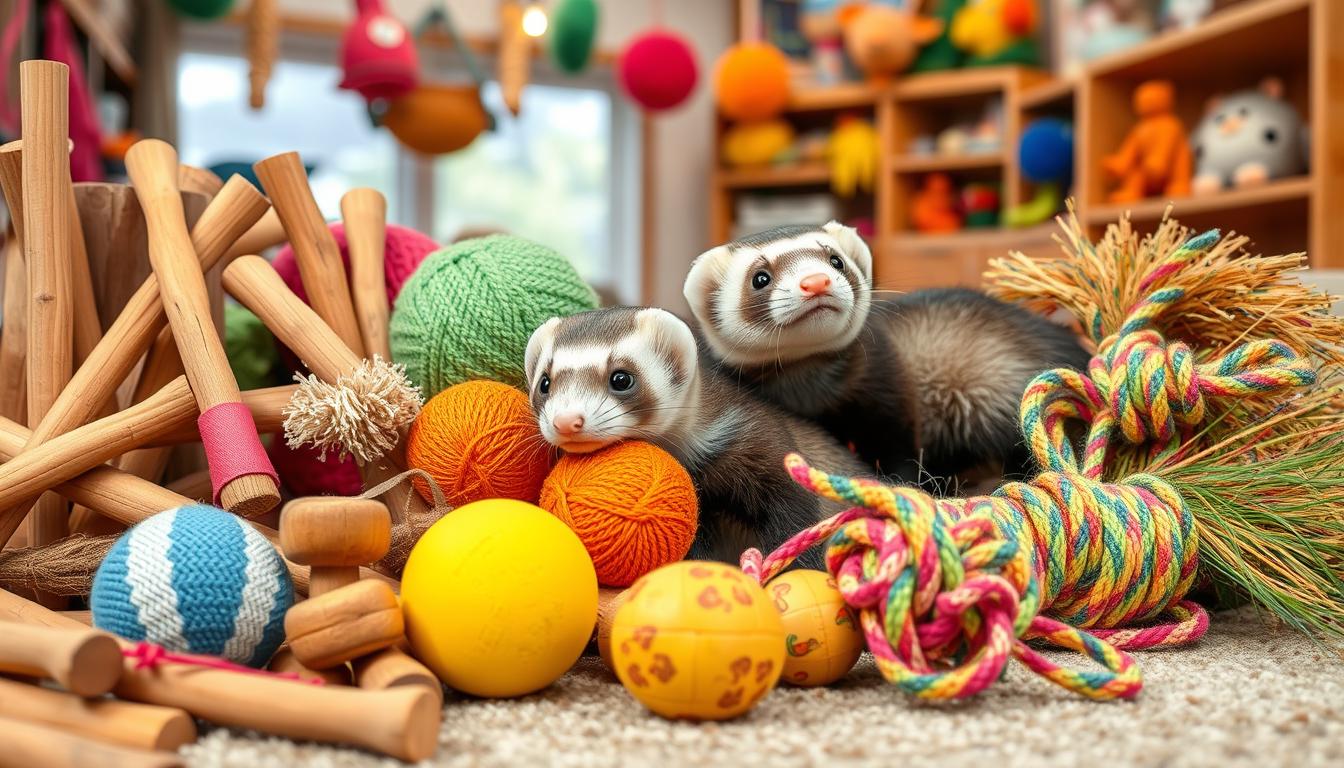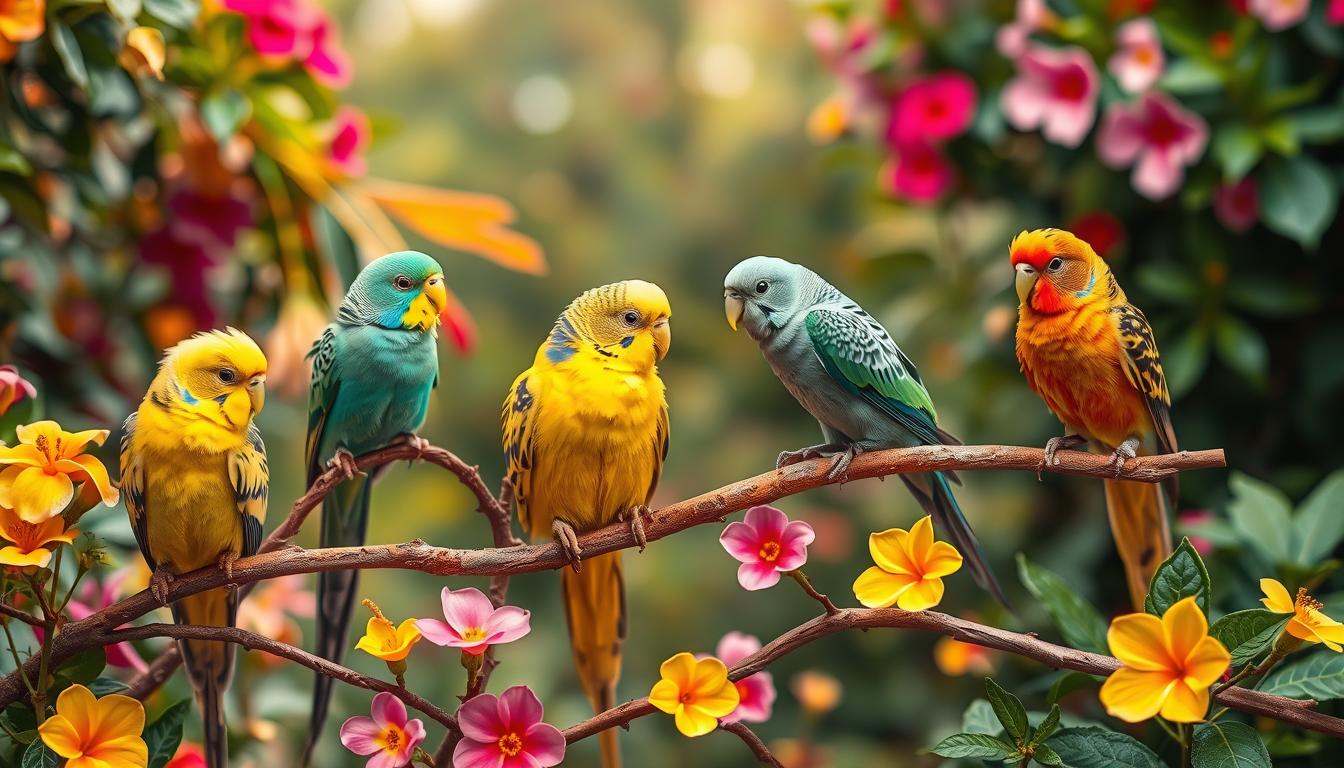Are Caniche Toy Dogs Right for Your Family Home?
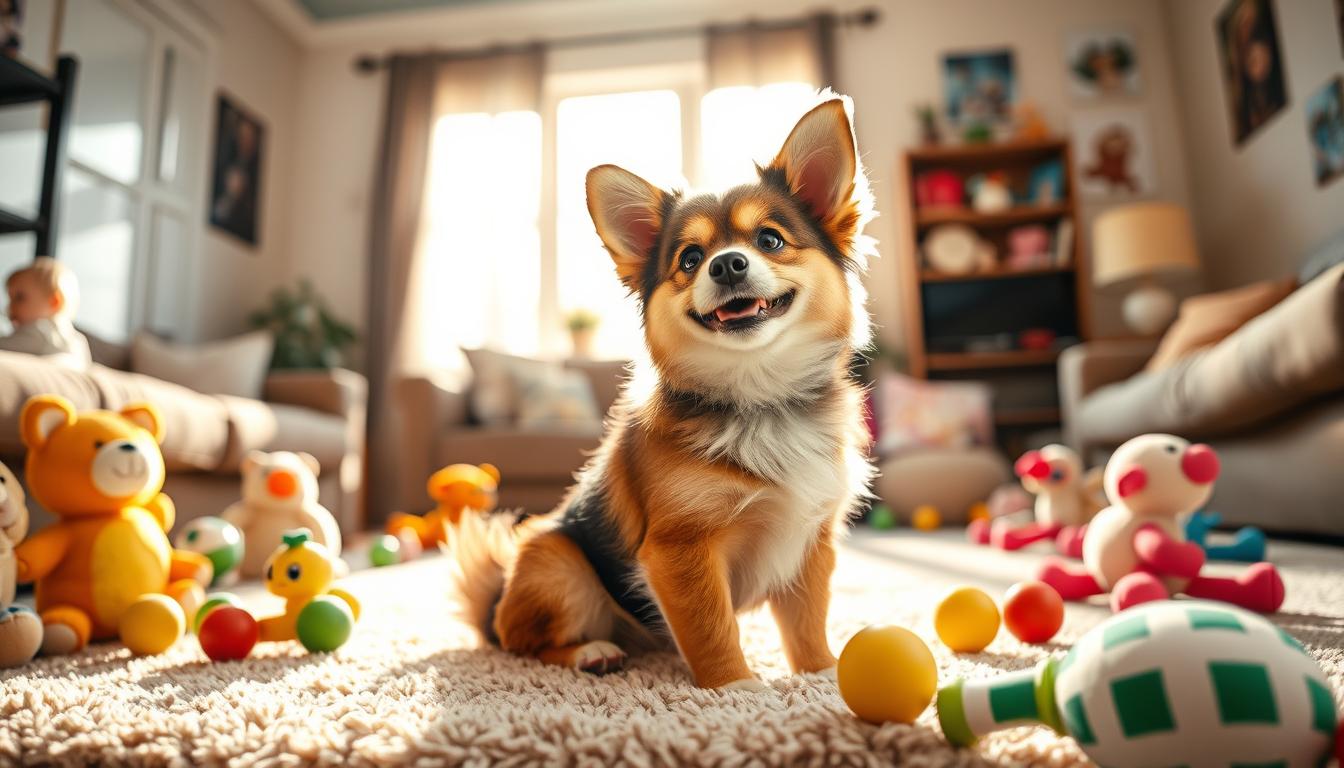
Did you know that Toy Poodles are among the lightest-shedding and most hypoallergenic dog breeds? They are a great choice for families worried about allergies.
The caniche toy dog, also known as a toy poodle, is a small poodle breed. They are known for being affectionate and smart. These family dogs are not just cute but also need a lot of care and attention.
Deciding if a caniche toy dog is right for your family means looking at their behavior, grooming needs, and energy levels. Your journey with a toy poodle can be very rewarding. But, it does take time and patience to raise them right.
From their charming personalities to their unique care needs, there’s a lot to think about. For families ready to invest time and love, a caniche toy dog can become a beloved member of the family. If you want to learn more about the responsibilities of toy poodles, check out here.
Key Takeaways
- Caniche toy dogs are suitable for families looking for a hypoallergenic dog.
- They need regular grooming and care to maintain their curly coats.
- Understanding their energy levels is crucial to prevent destructive behavior.
- Early socialization and training are essential for a well-adjusted pet.
- Toy poodles enjoy companionship and can thrive in loving environments.
Introduction to Caniche Toy Dogs
Caniche toy dogs, also known as toy poodles, are the smallest poodles. They come in three sizes: standard, miniature, and toy. These small poodle breeds have a rich history, often linked to nobility and the upper class. They are playful and loving, making them great family pets.
These dogs are under 10 inches tall and weigh 4 to 6 pounds. They fit well in apartments and live 10 to 18 years. This makes them a long-term pet for those who love their company12. They come in many colors, like black, gray, white, and brown, making them fashionable pets.
Despite being small, toy poodles are full of energy. They need 15 to 30 minutes of exercise and mental play daily. They are smart and easy to train, which makes them popular pets. They also need regular grooming to keep their coat healthy and looking good1.
Understanding the Caniche Toy Dog Breed
The caniche toy dog is a small and charming breed. They weigh between 4 to 9 pounds and are about 10 inches tall34. Known for being very smart, these dogs are easy to train and listen well to commands4. Their curly coat is beautiful but needs regular grooming every 4 to 6 weeks5.
Health-wise, the miniature poodle and the caniche toy dog face similar issues like patellar luxation and progressive retinal atrophy5. They can live for 12 to 15 years, making them great long-term friends for families34. Their playful and loving nature makes them wonderful pets for many families.
Pros of Owning a Caniche Toy Dog
Owning a Caniche Toy Dog has many benefits. They are great for families because of their hypoallergenic nature and intelligence. They also make excellent companions for children.
Hypoallergenic Qualities
The Caniche Toy Dog is known for being hypoallergenic. They shed very little, making them perfect for families with allergies6. Their coat reduces allergens in the home, helping sensitive family members feel better.
Intelligence and Trainability
These dogs are very smart and love to learn. They do well in obedience and agility competitions6. They enjoy activities that challenge their minds and keep them playful.
Good with Children and Other Pets
Caniche Toy Dogs get along well with kids and other pets. They are friendly and loving, creating a peaceful home6. They are patient and loving, making them great playmates for children.
Cons of Owning a Caniche Toy Dog
Owning a Caniche Toy Dog is rewarding but comes with challenges. It’s important to understand these cons before committing to this intelligent dog breed.
Maintenance of Their Coat
The coat of a Caniche Toy Dog needs regular care. Their curly fur can easily mat, so daily brushing is a must. Also, they need professional grooming every four to six weeks. This keeps their coat healthy and prevents skin problems.
Need for Mental Stimulation
Caniche Toy Dogs are smart and need mental challenges. Without them, they might chew or bark too much. They need activities like interactive toys and training to keep their minds active.
Emotional Sensitivity
These dogs are emotionally sensitive, making them challenging to own. They don’t like changes and can get stressed. A calm home is key to their happiness. Owners should be gentle and understanding to avoid anxiety.
Caniche Toy Dog vs. Other Poodle Sizes
The caniche toy dog is known for its small size and fun nature. It’s different from the bigger poodles, like the miniature and standard poodles. A toy poodle weighs 4-8 pounds and is 8-10 inches tall7.
Miniature poodles are taller, growing to 11-15 inches, and weigh 10-15 pounds. Standard poodles are the biggest, reaching 18-24 inches and weighing up to 70 pounds8.
These sizes also have different energy levels and living needs. Toy poodles are great for small spaces like apartments. Standard poodles need more room to run and play9.
Toy poodles live 10-18 years, similar to miniature poodles. Standard poodles live a bit less, between 12-15 years8.
Toy poodles are good for families with older kids and active seniors. Miniature poodles are versatile but need watchful eyes around young kids because of their energy7.
Both toy and miniature poodles need regular grooming and are easy to train. This makes them great for new dog owners7.
| Size | Height | Weight | Lifespan |
|---|---|---|---|
| Toy Poodle | 8-10 inches | 4-8 pounds | 10-18 years |
| Miniature Poodle | 11-15 inches | 10-15 pounds | 10-18 years |
| Standard Poodle | 18-24 inches | 44-70 pounds | 12-15 years |
The Ideal Living Environment for a Caniche Toy Dog
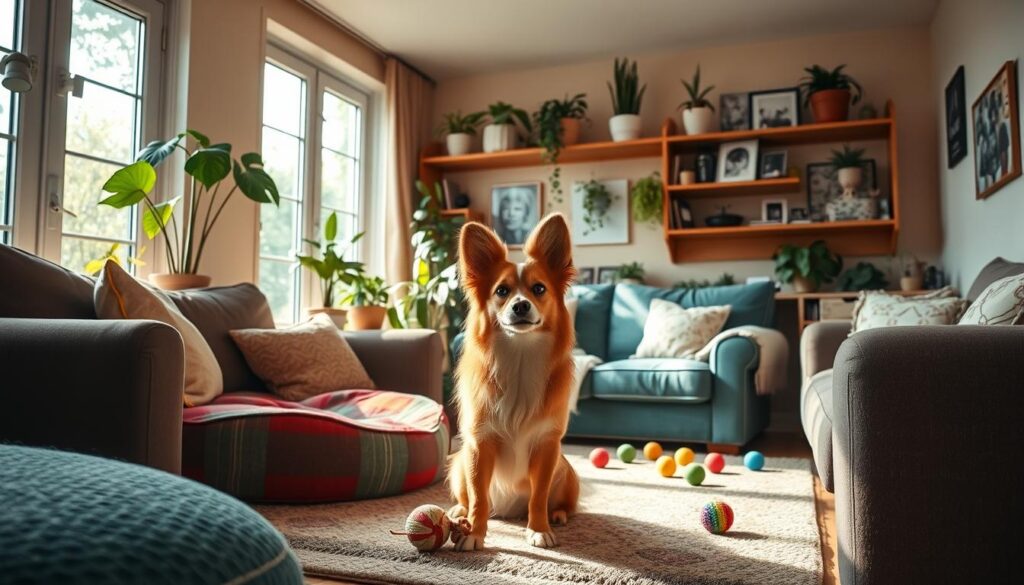
When thinking about where a caniche toy dog should live, you’ll see they can fit into many homes. They do well in both small apartments and bigger houses. The key is to make sure they get enough exercise and mental play.
Space Requirements
Caniche toy dogs need a bit of space, but it’s not much. They are small, reaching only 10 inches tall and weighing 4 to 6 pounds. This makes them perfect for small homes. It’s also important to take them to the vet regularly to keep them healthy. They might get dental problems or eye issues like progressive retinal atrophy10.
Socialization Needs
Socializing dogs is very important for their growth. For caniche toy dogs, meeting other pets and people early on helps them become friendly and well-adjusted. This early socialization greatly affects their behavior, making them better companions for their families. For more on socializing and training, check out this guide.
Lastly, don’t forget about grooming. Regular grooming every six to eight weeks keeps their coat healthy and prevents mats11. By considering these points, you’ll make a great home for your caniche toy dog. It will meet their physical needs and support their emotional and social well-being11.
Activities and Exercises for Your Caniche Toy Dog
It’s important to keep your Caniche Toy Dog active and mentally sharp. They love to play and need lots of interaction. Make sure they get at least 30 minutes to an hour of walking each day. This keeps them healthy and strengthens your bond12.
Water fetch is a great way to engage them. Poodles are natural swimmers thanks to their webbed feet and water-repellent coat. It’s a fun way to keep them active and mentally stimulated13.
Indoor Hide and Seek is another fun activity. It’s a game that keeps them physically active and mentally sharp. They’ll love the challenge of finding you13.
Using interactive toys can also make playtime more exciting. These toys keep their minds active and prevent boredom. The Treat Puzzle Challenge is especially good for their cognitive skills1312.
Agility training is a great way to combine physical and mental exercise. It’s not only good for their fitness but also strengthens your bond through teamwork. Poodles are very smart and do well in agility tasks1312.
Training Tips for Caniche Toy Dogs
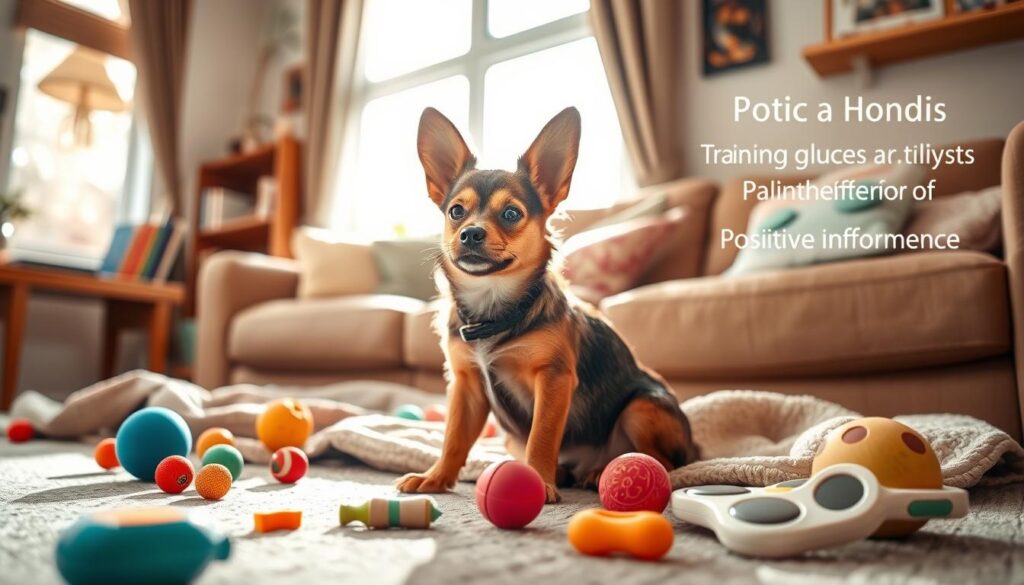
Training your Caniche Toy Dog can be fun and rewarding. It’s important to use effective techniques to build a strong bond. Using tips for training small dogs can make this process better, helping you and your dog do well together.
Positive Reinforcement Techniques
Positive reinforcement is a great way to train your dog. Rewarding good behavior with treats or praise is effective. This method strengthens your bond and creates a positive learning space14.
Consistency is key. Regular training keeps your Toy Poodle focused. Using the same words and tone helps them learn fast. Remember to give your dog breaks to keep them motivated and avoid burnout.
Importance of Early Socialization
Starting socialization early is vital for well-adjusted puppies. Early exposure to different places, people, and animals helps them develop social skills14. Puppy kindergarten classes are great for this.
Training in various places helps your dog understand commands better and adapt15. Toy Poodles are smart but can get bored easily. Changing your training routines keeps them interested and active15
Conclusion
The caniche toy dog is a great choice for families. They are loving, agile, and smart. They are perfect for homes and can live up to 15 to 17 years16.
They need regular grooming and mental games. But, they are worth it. They are good for people with allergies because they shed less often17.
If you think a caniche toy dog is right for you, look into reputable breeders. Puppy Mansion Miami is a good place to start. They have puppies that will bring joy and laughter to your home to learn more about this. Make sure you can provide the care they need for their whole life.
FAQ
What are the typical characteristics of caniche toy dogs?
Are caniche toy dogs hypoallergenic?
How do I train my caniche toy dog effectively?
What type of living space do caniche toy dogs need?
Are caniche toy dogs good with children and other pets?
What grooming needs do caniche toy dogs have?
What activities help keep caniche toy dogs engaged?
What are the potential challenges of owning a caniche toy dog?
How does the caniche toy dog compare to larger poodles?
Source Links
- https://pottybuddy.co/blogs/potty-buddy-blog/toy-poodle-dog-breed-information-characteristics – Toy Poodle Dog Breed Information & Characteristics
- https://www.dogster.com/dog-breeds/toy-poodle – Toy Poodle Dog Breed: Info, Pictures, Traits & Care Guide – Dogster
- https://www.dogbreedinfo.com/toypoodle.htm – Toy Poodle Dog Breed Information and Pictures
- https://dogtime.com/dog-breeds/poodle – Poodle Dog Breed Information & Characteristics
- https://www.sidewalkdog.com/toy-poodle/ – Toy Poodle – Sidewalk Dog
- https://www.yourpurebredpuppy.com/reviews/toypoodles.html – Toy Poodles: What’s Good About ‘Em, What’s Bad About ‘Em
- https://www.dogster.com/dog-breeds/toy-poodle-vs-miniature-poodle – Toy Poodle vs Miniature Poodle: The Differences (With Pictures) – Dogster
- https://www.dailypaws.com/living-with-pets/pet-compatibility/types-of-poodles – Which Type of Poodle Is Your Perfect Pup Pal?
- https://en.wikipedia.org/wiki/Poodle – Poodle
- https://www.healthypawspetinsurance.com/blog/toy-poodle-breed-and-insurance-guide – Toy Poodle Breed and Insurance Guide | Healthy Paws Pet Insurance
- https://apupabove.com/blogs/all/toy-poodle – Toy Poodle: Easy Care and Information Guide
- https://citizenshipper.com/blog/training-your-poodle-smart-strategies-for-an-intelligent-breed/ – Training Your Poodle: Smart Strategies for an Intelligent Breed
- https://moyen-poodle.com/poodle-friendly-activities/ – Poodle-Friendly Activities and Games – Moyen-Poodle.com
- https://www.oneminddogs.com/blog/how-to-train-your-poodle-5-key-steps-from-the-dogs-perspective/ – How to train your Poodle: 5 key steps from the dog’s perspective – OneMind Dogs
- https://www.dogster.com/dog-training/how-to-train-toy-poodle – How to Train a Toy Poodle: 5 Vet-Reviewed Tips for Success – Dogster
- https://www.zooplus.co.uk/magazine/dog/dog-breeds/toy-poodle – Toy Poodle | zooplus Magazine
- https://thesavvysitter.org/blog/7-amazing-facts-you-should-know-about – 7 Amazing Facts You Should Know About Toy Poodles – The Savvy Sitter

